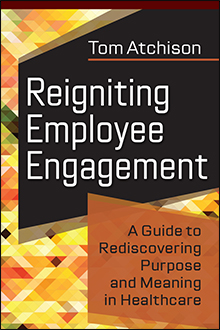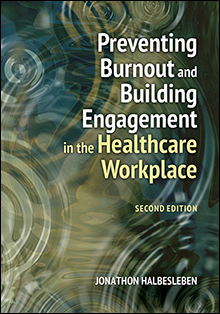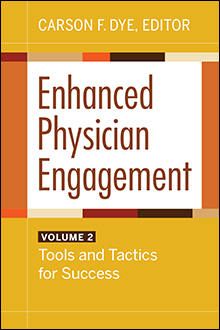Explore this month’s selections for our “What’s On Your Bookshelf?” series from Health Administration Press, the publishing division of the Foundation of the American College of Healthcare Executives. As one of the largest publishers in the field of healthcare management, we have titles for healthcare professionals at every stage of their career. Check them out today.
Reigniting Employee Engagement: A Guide to Rediscovering Purpose and Meaning in Healthcare
(Winner of the 2023 James A. Hamilton Award for book of the year.)
Many organizations know employee engagement is essential to success, but few approach it in the right way. Bonuses, thank-you notes, employee-of-the-month awards and similar initiatives may produce temporary boosts in morale but do not build a long-term culture of true engagement.
Reigniting Employee Engagement: A Guide to Rediscovering Purpose and Meaning in Healthcare presents a simple model for creating sustainable employee engagement. Rising caregiver burnout is an especially critical issue, and this book provides a method for refocusing on basic human needs to reenergize the healthcare workforce.
Author Tom Atchison explores the psychology of why and how people commit to their work while debunking many myths, such as money being the best motivator. Each chapter features an interview with a successful healthcare executive who offers perspective and advice on how best to approach employee engagement. These “performance profiles” allow readers to see how the book’s model applies to real-world scenarios in healthcare.
Preventing Burnout and Building Engagement in the Healthcare Workplace, Second Edition
Healthcare workers have been experiencing the ripple effects of increasing strain, staffing shortages and anxiety since early 2020. Undoubtedly, stress and burnout are having substantial systemic, financial and human impact on healthcare organizations. This new edition addresses these concerns and offers ways to foster your employees’ engagement in their work.
The book describes how to identify common underlying stressors that lead to employee burnout, tactics for shifting the attention away from individuals and toward improving the stressful environment in which they work, and techniques for evaluating interventions. Healthcare leaders can use this practical guide to help their staff recover from burnout and regain a sense of passion for their work.
Addressing burnout is the right thing to do by the healthcare professionals you employ, work with and contract with. It also can dramatically benefit your organization in terms of better systemwide functioning and bottom-line performance.
Enhanced Physician Engagement: What It Is, Why You Need It, and Where to Begin, Volume 1 and Enhanced Physician Engagement: Tools and Tactics for Success, Volume 2
In this Enhanced Physician Engagement book bundle, Carson Dye first offers a foundation for understanding what physician engagement is and the role physician leaders play in healthcare organizations. The second volume will provide step-by-step tips and techniques for developing your own robust action plan for long-term engagement and organizational success.
Enhanced Physician Engagement, Volume 1: What Is It, Why You Need It, and Where to Begin looks at physician engagement as a strategic and tactical priority. Dye starts by offering a focused definition of engagement and explaining why physicians should play an active role in governance, leadership, and management. He shares two models to help you understand the book’s foundational concepts and visualize what physician engagement can look like in your own organization.
Enhanced Physician Engagement, Volume 2: Tools and Tactics for Success is a how-to guide for involving and inspiring physicians. The book examines concrete, practical methods for tackling hot-button issues such as burnout, the burden of electronic health records and accountability—factors that can cause disengagement.




